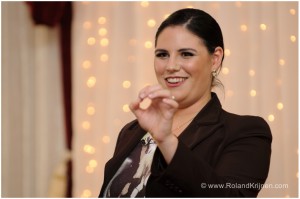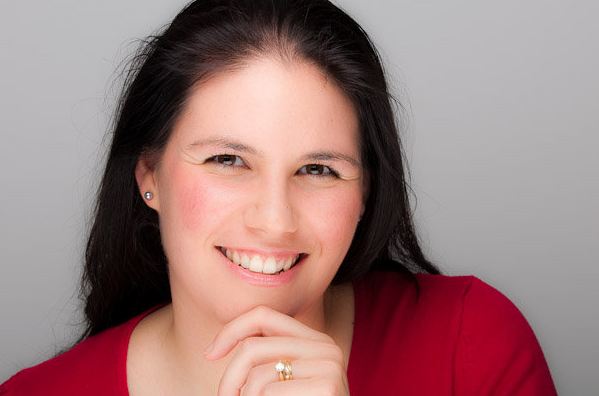You Are Not Their Friend, You Are Their Coach!
In this week’s guest post Frederique Murphy shares her expertise and shares her advice to coaches.
You Are Not Their Friend, You Are Their Coach!
And before, you start shouting at me (!) in front of your screen, let me add, “During sessions”.
This is something that comes up often in my work with coaches, and I thought it would be a great topic to guest blog about, for Jen at Coaching Confidence.
So, here it goes: During sessions, you are not their friend, you are their coach.
And, before reading any further, take a few seconds to check in internally and become fully aware of what comes up for you, as clarity and consciousness always help us more forward. Whatever is coming up is good, and are things for you to be aware of, so that you can do something about it.
When it comes to roles, it is important to lay out some boundaries, and to stick to these; let’s take a look at the various scenarios and roles.
Life -context, as in, outside sessions = can you and your client be friends?
Yes AND No
The choice is up to you, it is a personal choice; and, it will probably depend on the client too, I think this is a grey area with no straight answer; in the end, it is entirely your choice. You may be comfortable being friends outside, or you may not; it is up to you to decide on your terms; you decide on your role or roles, and as a result, on the relationships you are having with the people surrounding you.
Business -context, as in, during sessions = can you and your client be friends?
Yes, you can, BUT…
I believe that bringing in the friendship has consequences. And, I base my answer on the following scenarios, and it is not an exhaustive list.
I truly believe that during sessions, you as the coach, definitely need to put your coach hat on, and leave outside the friend one, as this is what your client has signed up for.
![]() As a coach, you want to be objective and neutral as this is what your client needs from you; as a friend, sometimes, you would leave the objectivity at the door as this is not what your friend needs.
As a coach, you want to be objective and neutral as this is what your client needs from you; as a friend, sometimes, you would leave the objectivity at the door as this is not what your friend needs.
![]() As a coach, you want to be able to say the things that your clients needs to hear, no matter how uncomfortable it might be for them; as a friend, sometimes, you simply want to be there for them, as this is what your friend needs.
As a coach, you want to be able to say the things that your clients needs to hear, no matter how uncomfortable it might be for them; as a friend, sometimes, you simply want to be there for them, as this is what your friend needs.
![]() As a coach, you want to interrupt the patterns you are noticing in your clients, even if that means to interrupt them verbally; as a friend, sometimes, you want to lend a listening ear, as this is what your friend needs.
As a coach, you want to interrupt the patterns you are noticing in your clients, even if that means to interrupt them verbally; as a friend, sometimes, you want to lend a listening ear, as this is what your friend needs.
![]() As a coach, you want the best for your client and are ready to push the buttons that need pushing; as a friend, sometimes, you will not say what you have in mind as you want to be liked, and you will fear hurting their feelings.
As a coach, you want the best for your client and are ready to push the buttons that need pushing; as a friend, sometimes, you will not say what you have in mind as you want to be liked, and you will fear hurting their feelings.
![]() As a coach, you want to hold your client accountable to what they told you they would do, and will not accept any excuses; as a friend, sometimes, you will be there and accept the excuses as this is what your friend needs.
As a coach, you want to hold your client accountable to what they told you they would do, and will not accept any excuses; as a friend, sometimes, you will be there and accept the excuses as this is what your friend needs.
![]() As a coach, you want to be there for your client, and that means leaving your own “stuff” at the door; as a friend, sometimes, you will not be able to be there, as you have your own stuff to deal with.
As a coach, you want to be there for your client, and that means leaving your own “stuff” at the door; as a friend, sometimes, you will not be able to be there, as you have your own stuff to deal with.
![]() As a coach, you want to challenge and stretch your client, and it might mean “pushing” them to greatest heights, as you are there to help them be at their best; as a friend, sometimes, you will settle for their wins, it is not your job to stretch them.
As a coach, you want to challenge and stretch your client, and it might mean “pushing” them to greatest heights, as you are there to help them be at their best; as a friend, sometimes, you will settle for their wins, it is not your job to stretch them.
![]() As a coach, you want to be there for your client when they open up, and share their dreams, doubts, fears, and deepest insecurities; as a friend, sometimes, you will not hear what your friend is trying to tell you, or see what is going on in their mind, and you will not be able to help them push through the blocks and make it all happen.
As a coach, you want to be there for your client when they open up, and share their dreams, doubts, fears, and deepest insecurities; as a friend, sometimes, you will not hear what your friend is trying to tell you, or see what is going on in their mind, and you will not be able to help them push through the blocks and make it all happen.
In the end, you will do what you want… But, something very clear is that, as a coach, you owe your client to do your utmost to guide them to be at their best, to guide them to reach their goals, and to guide them to fulfil their outcomes. And doing though, will require you to step in, fully, in your coach role, with the right intent, that, you will do whatever is necessary for that relationship to work.
Be clear, have boundaries, set expectations, and always and first, have your client’s outcome at heart.
About the Author/Further Resources
 Frederique Murphy is a business mindset strategist, who founded her business to focus on her passion: transformation! Thanks to her Mountain Moving Mindset programme, Frederique empowers business owners, entrepreneurs, and corporate executives to master their mindset, so that they can move mountains and bring their life and their business to a whole new level! She shares her M3 Power through her coaching and mentoring packages, her published books & articles, her award-winning blog and newsletters, and her unique live events. For more information on Frederique’s transformational range of products and services, visit FrederiqueMurphy.com, get your free M3 Power, and start climbing now!
Frederique Murphy is a business mindset strategist, who founded her business to focus on her passion: transformation! Thanks to her Mountain Moving Mindset programme, Frederique empowers business owners, entrepreneurs, and corporate executives to master their mindset, so that they can move mountains and bring their life and their business to a whole new level! She shares her M3 Power through her coaching and mentoring packages, her published books & articles, her award-winning blog and newsletters, and her unique live events. For more information on Frederique’s transformational range of products and services, visit FrederiqueMurphy.com, get your free M3 Power, and start climbing now!
 Combining her business expertise, having been a business consultant for over 10 years, working on multi-millions programmes around the world and running a successful 6-figure business (she hit that figure within 9-months in business and then doubled it within the following 6 months!) and her mind expertise, being an international licensed NLP Master Practitioner & NLP Mind Coach, Frederique has developed the “
Combining her business expertise, having been a business consultant for over 10 years, working on multi-millions programmes around the world and running a successful 6-figure business (she hit that figure within 9-months in business and then doubled it within the following 6 months!) and her mind expertise, being an international licensed NLP Master Practitioner & NLP Mind Coach, Frederique has developed the “